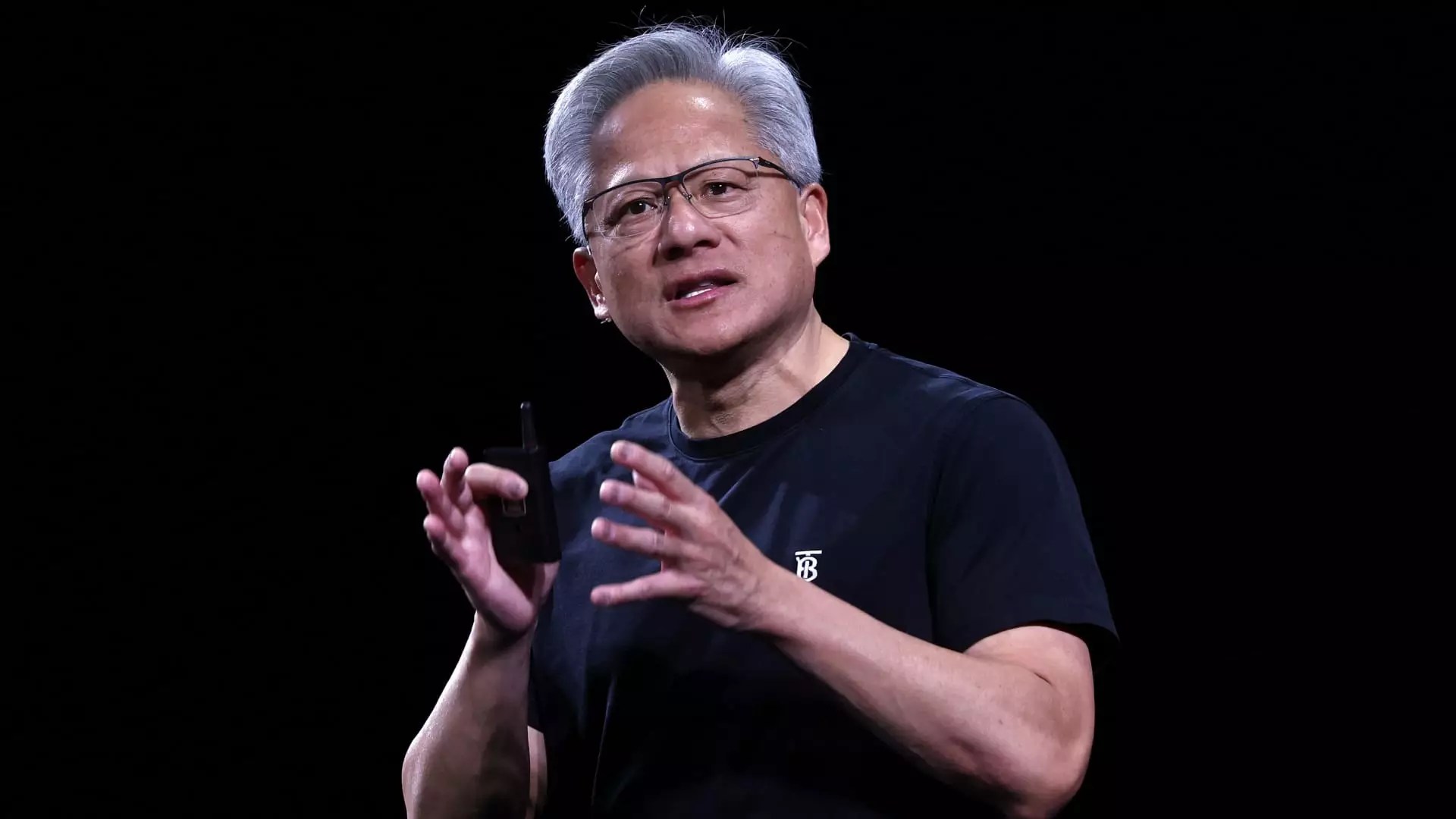Jensen Huang, the CEO of Nvidia, has captured the attention of Europe with his electrifying presence. This week, his tour across London and Paris transformed the tech landscape into what can only be described as a “rock concert” setting. Long queues formed outside venues to catch a glimpse of the tech mogul, and the palpable excitement of the audience mirrored that of fans awaiting a pop star. It is not just his charisma that resonates; it’s the vision he brings for the future of artificial intelligence (AI). As he engaged with leaders like U.K. Prime Minister Keir Starmer and French President Emmanuel Macron, it became increasingly apparent that he is not merely selling chips; he is selling hope for a technologically empowered Europe.
Huang’s discussions at high-profile events such as London Tech Week and Nvidia’s GTC gathering in Paris underscored a clear and provocative narrative: Nvidia is poised to lead Europe in building its AI infrastructure. This pivotal role is essential if Europe aims to define its own destiny in an era dominated by rapidly evolving technology. His claim that AI should be viewed as a public utility, akin to electricity, opens the door for a fresh dialogue about how nations can harness this powerful technology for collective benefit.
AI as a Sovereign Right
One of Huang’s compelling arguments is the call for “sovereign AI.” This concept advocates for the establishment of localized data centers to serve domestic populations, ensuring that countries are not reliant on foreign technology providers. Huang’s emphasis on this notion raises an important question: should a nation’s AI capabilities be a matter of sovereignty? The answer is a resounding yes. In an age of information warfare and technological dependencies, the potential ramifications of foreign-controlled AI infrastructure can be unsettling.
During his engagements, Huang celebrated European nations for their untapped potential in the AI sector, indicating a profound belief in their ability to forge an independent path. The announcement of a partnership with French startup Mistral to create an AI cloud exemplifies the proactive steps being taken in this direction. This collaboration not only signifies Nvidia’s commitment but also positions France as a major player in the global AI arena.
U.S.-China Rivalry: An Imminent Concern
However, amidst the optimism, a stark cautionary tale looms regarding the technological divide between the United States and China. U.S. export controls have placed Nvidia in a precarious situation, essentially cutting off advanced chip sales to the Chinese market. Huang openly discussed this at length, illustrating a landscape where China’s Huawei, despite being a generation behind, has the manpower and energy to overcome initial limitations.
The message is clear: if the U.S. maintains its distance, China is ready to leapfrog in AI technology, leveraging its own resources to forge a path that could rival American advancements. This geopolitical tension creates a scenario where nations may opt to align with Chinese firms, potentially reshaping the competitive landscape. Therefore, the urgency for U.S. companies, including Nvidia, to innovate responsibly while navigating these complex international waters cannot be overstated.
The Next Decade: A Promise Unveiled
What is particularly compelling about Huang’s outlook is his prediction for the upcoming decade—the “decade of autonomous vehicles and robotics.” His assertion ties directly to the capabilities of Nvidia’s technology, implying that breakthroughs in these fields are not just possible but imminent. With AI woven into the fabric of these advancements, the potential consequences on everyday life could be revolutionary.
Huang also touched upon breakthroughs in quantum computing, stating that the technology is at an “inflection point.” The prospect of quantum computers resolving problems beyond the scope of traditional computing ignites excitement among tech enthusiasts and researchers alike. Imagine the potential in fields like healthcare, where swift drug discovery could significantly change patient outcomes.
Jensen Huang’s European tour highlights the crossroads at which technology and politics currently reside. While his star power captivates in auditoriums packed with industry leaders and enthusiasts, it is his vision for an empowered Europe that leaves a lasting impression. The urgency to build sovereign AI solutions cannot be ignored, and Huang’s message is a clarion call for Europe to harness its collective resources.
As nations reconsider their technological strategies in light of emerging challenges, the actions taken now will ripple through generations. Huang’s presence serves not just as an inflection point in his career but perhaps as a transformative moment for European nations on the brink of defining their own AI destiny. Amidst the opportunities lies a call to action: to innovate, to collaborate, and ultimately, to lead.

